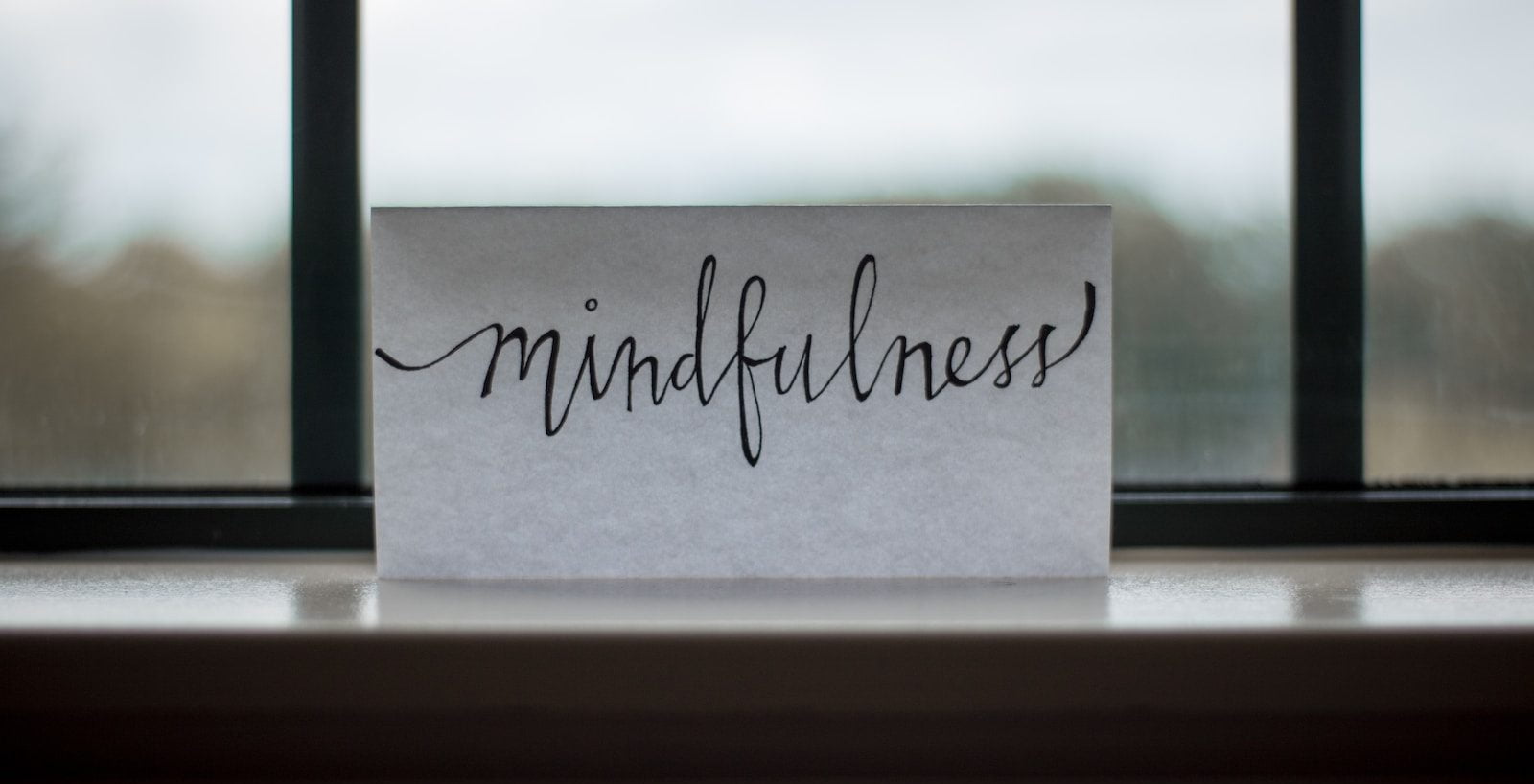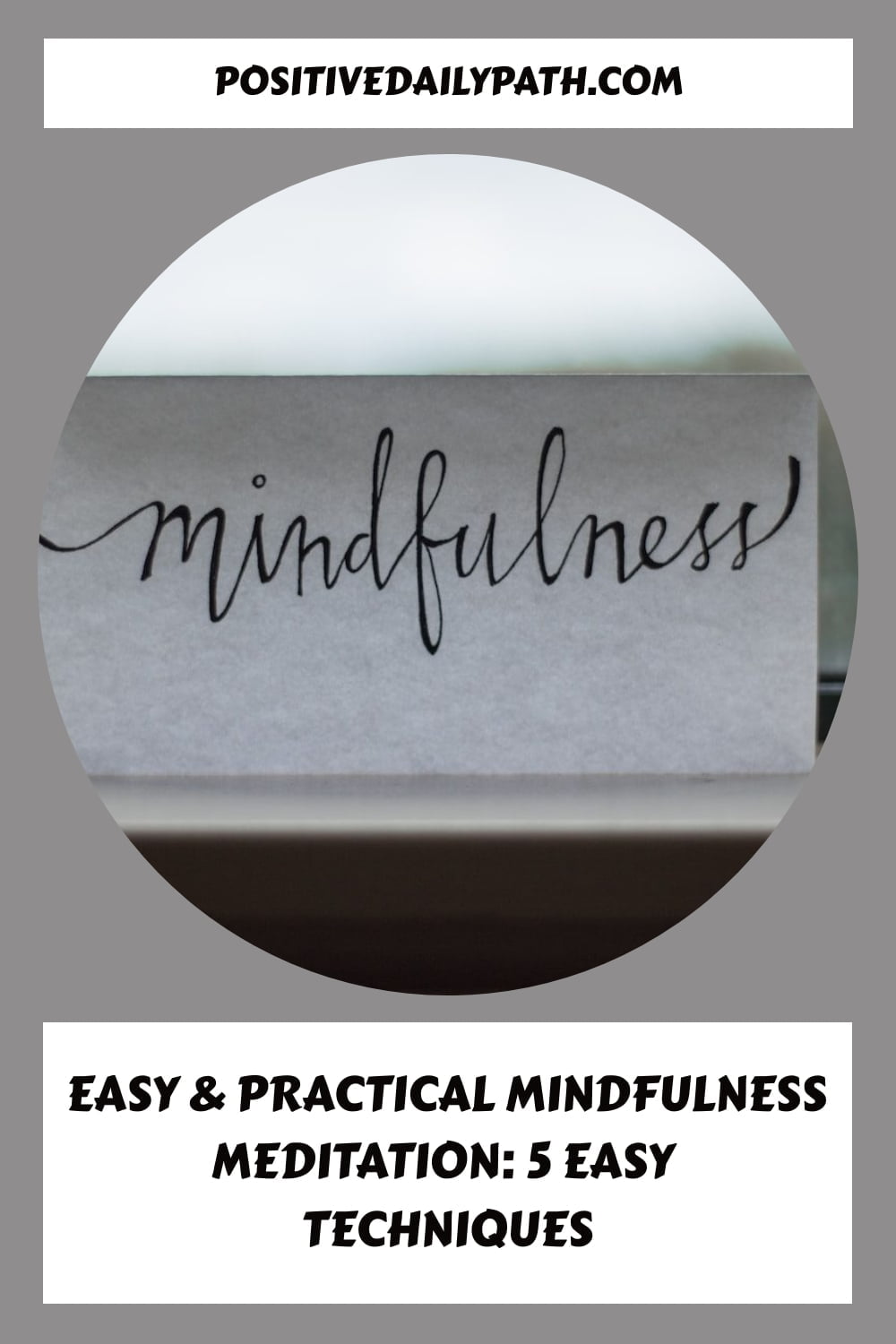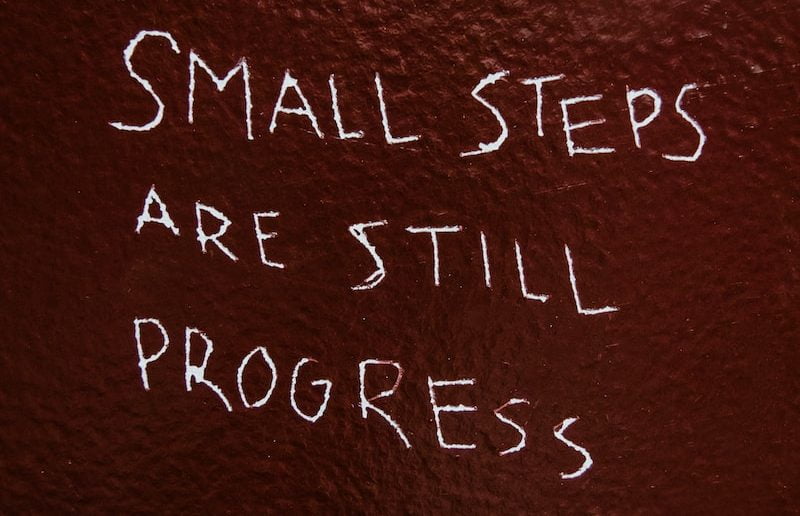An alarming 77% of people in the U.S. report experiencing physical symptoms caused by stress, including feelings of anxiety and depression, as well as episodes of hunger. Mindfulness meditation offers a powerful antidote to anxiety, fostering increased awareness and control over our mental state for stress reduction. By minimizing distractions, this practice can enhance focus, allowing for more effective exercises in maintaining calmness.
This article elucidates five practical, potent techniques and practices to harness the power of mindfulness meditation for stress reduction: Breath-Focused Technique incorporating breathing exercises, Body Scan Meditation, Mindful Observation, and Loving-Kindness Meditation.
Master these mindfulness techniques and exercises to navigate stress through mindfulness practice, and cultivate a more balanced, productive life with a consistent mindfulness meditation practice.
Key Takeaways
Mindfulness meditation offers a crucial tool for a calm and focused existence.
Breath-focused meditation is a fundamental and effective method for staying present and focused.
Body scan meditation encourages awareness of physical sensations and cultivates a comprehensive connection between body and mind.
Mindful observation practice fosters a deeper connection with the environment, promotes a sense of calm and presence, and enhances awareness and focus.
Understanding Mindfulness Meditation
Why is awareness of mindfulness meditation pivotal in stress reduction and managing anxiety through breathing in our daily lives?
Understanding the roots of mindfulness awareness propels us to develop skills such as breathing and listening to harness its power.
Meditation benefits, including mindfulness exercises and techniques, range from reduced stress and anxiety to enhanced cognitive abilities through mindful listening.
Knowledge of mindfulness techniques, including mindful listening and other mindfulness exercises, is a crucial tool in our daily lives. Rooted in ancient Buddhist teachings, these practices guide us towards an existence marked by calm, focus, productivity, and heightened awareness.
Embrace mindfulness, seize control, and maximize your potential.
Breath-Focused Technique
Diving into the realm of mindfulness techniques, the breath-focused exercises stand out as a fundamental and effective method to initiate your meditation journey, enhancing awareness, honing skills, and encouraging consistent practice.
Mindfulness exercises empower you through breath regulation and inhalation techniques, anchoring your awareness in the present moment to practice reducing anxiety.
Body Scan Meditation
Transitioning from breath-focused techniques, we now explore the Body Scan Meditation as a mindfulness exercise to enhance awareness through consistent practice, often integrated into therapy. This mindfulness method encourages:
Awareness of physical sensations
Understanding of one's body
Acquisition of progressive relaxation benefits
Acknowledgement of body scan limitations
Mindfulness is a powerful practice, cultivating a comprehensive connection between body and mind through exercises and therapy, while also illuminating potential physical discomforts. Embrace this technique to command your mind-body dialogue.
Mindful Observation Practice
Shifting our focus to Mindful Observation Practice, this mindfulness technique encourages the practitioner to consciously observe their surroundings with full attention, fostering a deeper connection with the environment and promoting a sense of calm and presence. Through such exercises, one learns to manage their thoughts more effectively.
This mindfulness practice reaps observation benefits such as heightened awareness and improved attention, with exercises that help manage thoughts and enhance focus. By encouraging nature immersion as a mindfulness practice, it allows power-seeking individuals to tap into the tranquility of the outer world, stimulating inner peace and mental clarity through brain exercises.
Loving-Kindness Meditation
In the realm of mindfulness meditation, Loving-Kindness Meditation emerges as a potent technique that incorporates exercises designed to focus attention on the breath and practice compassion. The practitioner consciously cultivates feelings of goodwill, love, and kindness towards themselves and others through mindfulness practice and exercises that sharpen attention. This mindfulness practice promotes enhanced emotional well-being through exercises that help individuals feel more present, directs attention towards the development of compassionate relationships, the elevation of positive emotions, and empowerment to overcome personal challenges.
In mastering the mindfulness practice and its exercises, one can harness the power of love and compassion, focusing their attention to transform their life.
Why Learn How to Meditate?
Stress Reduction
Meditation is a powerhouse when it comes to busting stress. Picture your mind like a cluttered desk, meditation helps tidy things up, giving you a clearer, calmer workspace.
Examples:
Deep breathing techniques
Mindfulness meditation
Progressive muscle relaxation
Better Focus
Got a brain like a web browser with too many tabs open? Meditation can help close some down and sharpen your focus.
Stats:
Studies show a 14% increase in concentration after regular meditation.
Emotional Health Boost
Feeling down or riding an emotional rollercoaster? Meditation is like a gym for your emotions, strengthening your ability to stay even-keeled.
Social Proof:
Many folks report improved mood and reduced anxiety levels.
Enhanced Self-Awareness
Ever feel like you're running on autopilot? Meditation is like hitting the pause button, helping you get to know your true self.
Case Study:
Mindfulness programs have shown to improve self-insight and self-esteem.
Improved Sleep
Counting sheep but still not snoozing? Meditation can be your natural sleep aid, helping you catch those Zs.
Social Proof:
A study found that meditation helped insomniacs fall asleep twice as fast.
Healthier Lifestyle Choices
Craving junk food or can't quit smoking? Meditation can boost your willpower and help you make healthier choices.
Examples:
Mindful eating
Meditation before exercise for motivation
Pain Management
Got aches and pains that won't quit? Meditation can turn down the volume on pain perception.
Case Study:
Clinical trials show meditation can reduce chronic pain by 57%.
Comparison: Meditation vs. No Meditation
| Feature | Meditation | No Meditation |
|---|---|---|
| Stress Levels | Lower | Higher |
| Focus | Sharper | More scattered |
| Emotional Stability | Improved | Less controlled |
| Self-Awareness | Enhanced | Limited |
| Sleep Quality | Better | Could be compromised |
| Lifestyle Choices | Healthier | Less healthy |
| Pain Management | More effective | Less effective |
So, why learn to meditate? It's like asking why eat healthy or exercise. It's about feeling your best, inside and out. Give it a shot, what's there to lose except some stress and a few bad habits?
Conclusion
In conclusion, mindfulness meditation techniques offer a myriad of benefits, from stress reduction to increased self-awareness, enhancing attention, encouraging regular exercise, and helping individuals feel more connected with their surroundings.
Mindfulness techniques such as breath-focused practice, body scan meditation, and mindful observation exercise attention and foster a sense of inner peace, clarity, and compassion, helping individuals to feel more grounded.
Isn't it time to embrace these techniques and enrich daily life with the transformative power of mindfulness meditation?
Frequently Asked Questions
What Are the Common Challenges Beginners Face in Mindfulness Meditation and How Can They Be Overcome?
Beginners often struggle with maintaining meditation postures and mastering meditation breathing techniques, as they start their practice of mindfulness. Simple mindfulness exercises can help focus attention and ease into the process. Overcoming these challenges requires consistent exercises, guided training, and patience to gradually gain control and attention over the body and mind during mindfulness meditation to feel more at peace.
Can Mindfulness Meditation Help With Specific Mental Health Issues Like Anxiety and Depression?
Yes, mindfulness meditation exercises can be a powerful practice in managing mental health issues like anxiety and depression, drawing attention to how we feel. Mindfulness practice physiologically reduces stress and enhances self-perception through exercise, fostering a healthier mental state where you feel akin to a calm sea after a storm.
How Quickly Can One Expect to See Benefits From Practicing Mindfulness Meditation?
The timeline for benefits from mindfulness meditation varies. However, consistent practice over weeks can yield noticeable improvements. It's crucial to dispel misconceptions and understand that the duration of mindfulness meditation practice impacts the effectiveness of training our attention through exercise. Patience and persistence are key.
Are There Any Potential Risks or Side Effects Associated With Mindfulness Meditation?
While meditation misconceptions may suggest otherwise, potential risks or unintended consequences may arise from mindfulness meditation if proper attention isn't given. Without regular practice, individuals might not feel the benefits of meditation, and improper exercise of techniques could lead to negative experiences. These include possible anxiety, distress, or feelings of depersonalization in rare cases, particularly among inexperienced or unsupervised practitioners of mindfulness exercises, who may lack the necessary attention to their mental state.
How Can Mindfulness Meditation Be Incorporated Into a Busy Daily Routine?
Incorporating mindfulness meditation into a busy routine can enhance attention and exercise the mind. This can be achieved through the use of mindfulness apps, reviewed for their effectiveness in helping users feel more present, and setting up a dedicated meditation space for regular, undisturbed practice.




